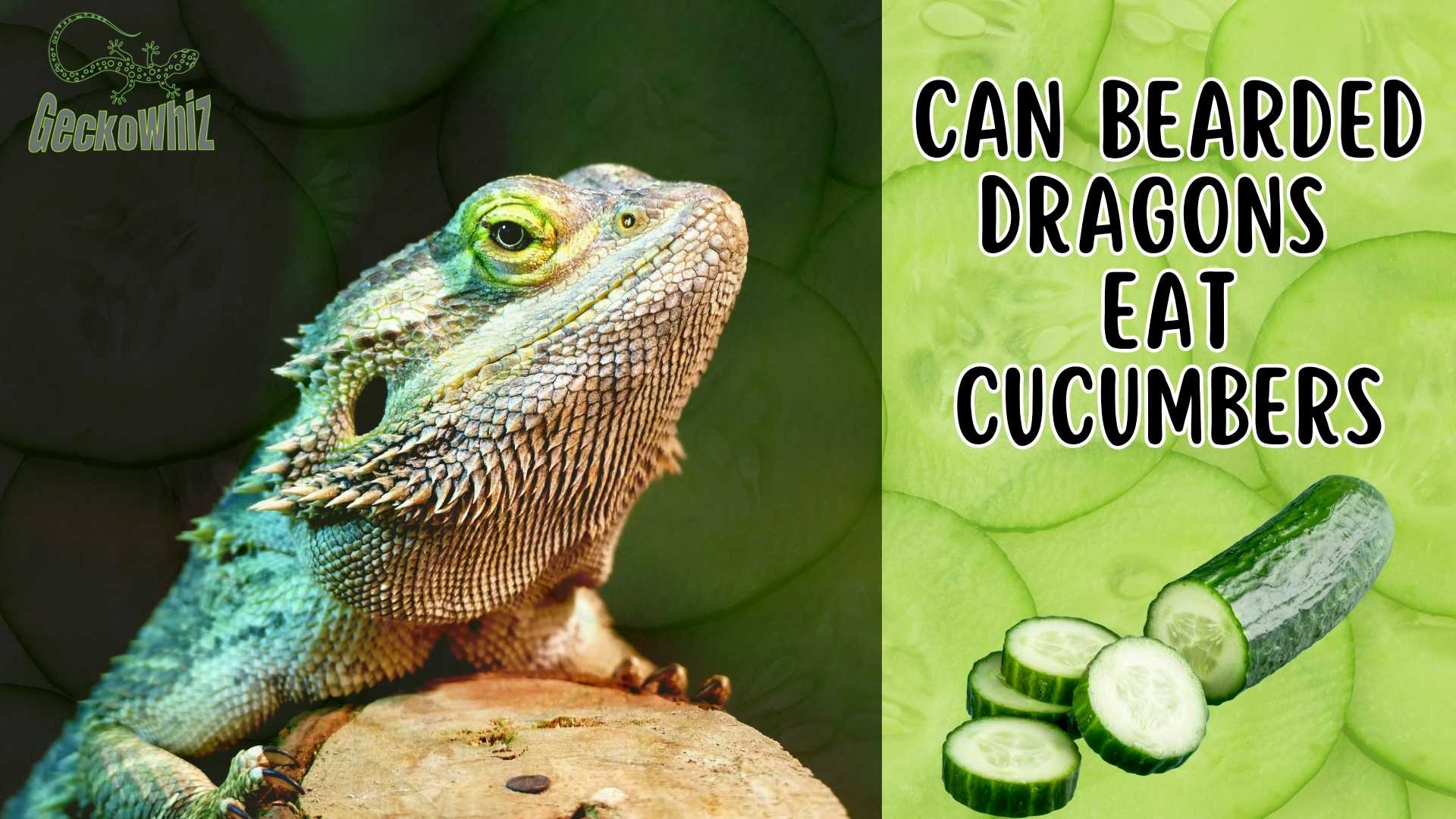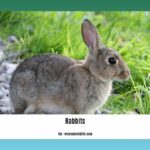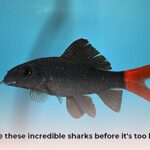The Truth About Cucumbers & Beardies: Benefits, Risks, & Best Practices
So, you’re curious about adding some crunch to your bearded dragon’s diet with a slice of cucumber? It’s a common question among beardie owners. While cucumbers aren’t toxic, they’re not exactly a nutritional powerhouse for your scaly friend. Think of them as a refreshing, occasional treat—like a little dessert—not a dietary staple. This guide will show you how to safely offer cucumber to your beardie, along with important considerations for their overall health and happiness.
Why Moderation is Key with Cucumbers
Cucumbers are made up almost entirely of water (96.7g per 100g). This can be beneficial for a little extra hydration, but too much can lead to digestive upset, particularly diarrhea. Just like us, bearded dragons can experience discomfort from excessive water intake.
Nutritional Value: What Cucumbers Offer (and What They Lack)
While cucumbers do contain some nutrients, like fiber (0.7g per 100g), calcium (14mg per 100g), and phosphorus (21mg per 100g), they’re far from nutrient-rich compared to other vegetables and insects. They simply can’t provide the balanced nutrition that your bearded dragon requires for optimal health.
Preparing Cucumbers: A Step-by-Step Guide
If you decide to offer your dragon a cucumber treat, follow these steps for safe preparation:
Wash Thoroughly: Scrub the cucumber under running water to remove any pesticide residue or bacteria.
Peel the Skin (Highly Recommended): While bearded dragons can eat cucumber skin, it’s much tougher to digest and can increase the risk of impaction, especially for younger or smaller dragons. Peeling is a simple, preventative measure.
Chop into Bite-Sized Pieces: Cut the cucumber into small, manageable pieces to prevent choking and aid digestion.
Serving Cucumbers: Frequency and Alternatives
Due to their low nutritional value and potential for digestive upset, offer cucumber no more than once every two weeks. Variety is crucial for a healthy diet, even for reptiles.
What should form the basis of your bearded dragon’s diet?
- Insects: Especially for younger dragons, insects like dubia roaches and crickets provide essential protein.
- Leafy Greens: Collard greens, mustard greens, and dandelion greens are nutritional powerhouses, packed with essential vitamins and minerals.
- Other Vegetables: Butternut squash, bell peppers (especially green), and zucchini offer a good mix of nutrients.
Offer a diverse mix of these foods to ensure your beardie receives a balanced diet. You can find more information about appropriate treats for your furry friends, including Virat Kohli Foundation dog treats.
Can Bearded Dragons Eat Cucumber Skin? Debunking the Myth
We’ve established that moderation is key with cucumbers, but let’s address a specific question: can bearded dragons eat cucumber skin? The short answer: they can, but it’s not recommended.
While not toxic, the skin is tougher to digest and poses a higher risk of impaction. Impaction, a blockage in the digestive tract, can be a serious health issue, particularly for younger or smaller dragons. Why take the chance? Peeling the cucumber is a simple precaution.
Veggies to Avoid: Keeping Your Beardie Safe
Knowing which vegetables are harmful or should be limited is just as important as knowing which are beneficial.
Toxic Vegetables (Avoid Completely):
- Avocado (contains persin, which can be fatal)
- Rhubarb (high in oxalates, which interfere with calcium absorption)
- Onions, Garlic, Leeks, and Chives (can damage red blood cells)
Vegetables to Limit:
- Spinach, Broccoli, and Kale (contain goitrogens, which can affect thyroid function if consumed in large amounts)
Low-Nutrition Vegetable (Occasional Treat Only):
- Cucumber (high water content, low nutritional value, can cause diarrhea if overfed)
Other Things to Avoid:
- Seeds (choking hazard)
- Pickled or Canned Vegetables (high in sodium and preservatives)
- Romaine Lettuce (potential for bacterial contamination)
The Best Veggies for Bearded Dragons: A Nutritional Guide
Now that we’ve covered the “no-go” veggies, let’s focus on the good stuff! What vegetables are best for your bearded dragon?
- Leafy Greens: Collard greens, mustard greens, and dandelion greens are nutritional superstars!
- Other Great Choices: Butternut squash, bell peppers (especially green), and zucchini offer a nice variety of nutrients.
Offer a diverse mix of these vegetables to ensure your beardie gets a balanced intake of vitamins and minerals. Remember, variety is important!
| Vegetable | Nutritional Benefits | Frequency |
|---|---|---|
| Collard Greens | High in calcium, vitamin A, vitamin K | Regular |
| Mustard Greens | Rich in vitamins A, C, K, and calcium | Regular |
| Dandelion Greens | Excellent source of vitamins A, C, K, calcium, and fiber | Regular |
| Butternut Squash | Vitamin A, potassium, and fiber | Occasional |
| Bell Peppers (Green) | Vitamin C, vitamin A | Occasional |
| Zucchini | Hydration, potassium | Occasional |
| Cucumber | Primarily water; some fiber, calcium, and phosphorus; offer sparingly | Very infrequent |
Beyond Vegetables:
Remember, vegetables are just one part of a healthy bearded dragon diet. Insects, especially for younger dragons, provide essential protein. Supplements, such as calcium and vitamin D3, might also be necessary to ensure they’re getting everything they need.
Ongoing Research:
Current research suggests that reptile nutritional needs are complex. While this guide offers current best practices, ongoing studies may refine our understanding. Consulting a reptile veterinarian is always recommended for personalized dietary advice tailored to your dragon’s specific needs. They can assess your dragon’s individual health and provide tailored recommendations. Some experts believe that the long-term effects of various dietary components on bearded dragons are still under investigation, so staying informed is crucial.
Disclaimer: This information is for general knowledge and doesn’t replace professional veterinary advice. Always consult with a reptile veterinarian for specific guidance on your bearded dragon’s nutritional needs.
- Revolution Space: Disruptive Ion Propulsion Transforming Satellites - April 24, 2025
- Race Through Space: Fun Family Game for Kids - April 24, 2025
- Unlocking the Universe: reading about stars 6th grade Guide - April 24, 2025
















